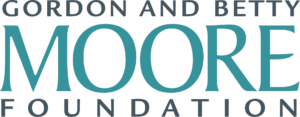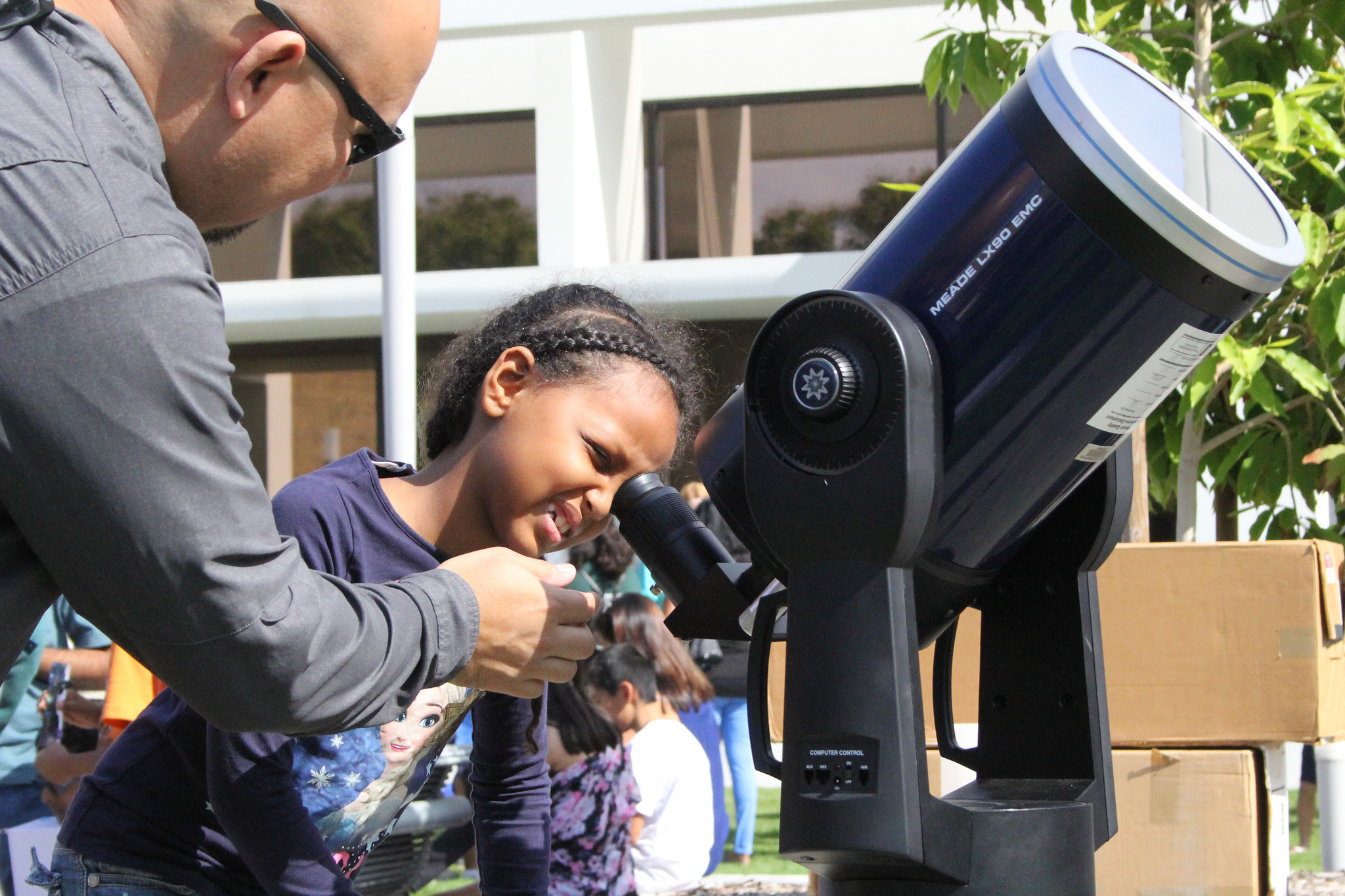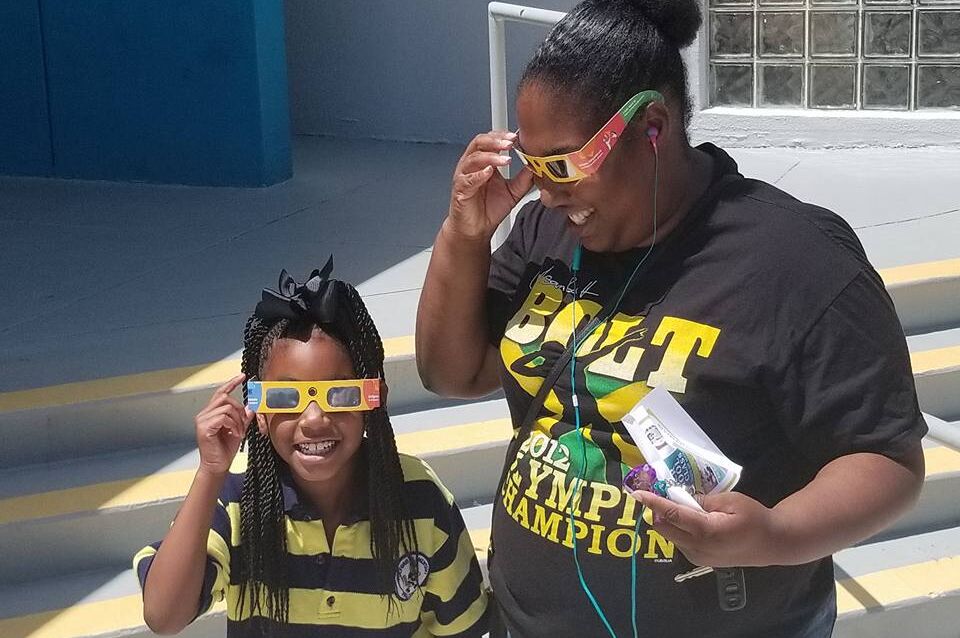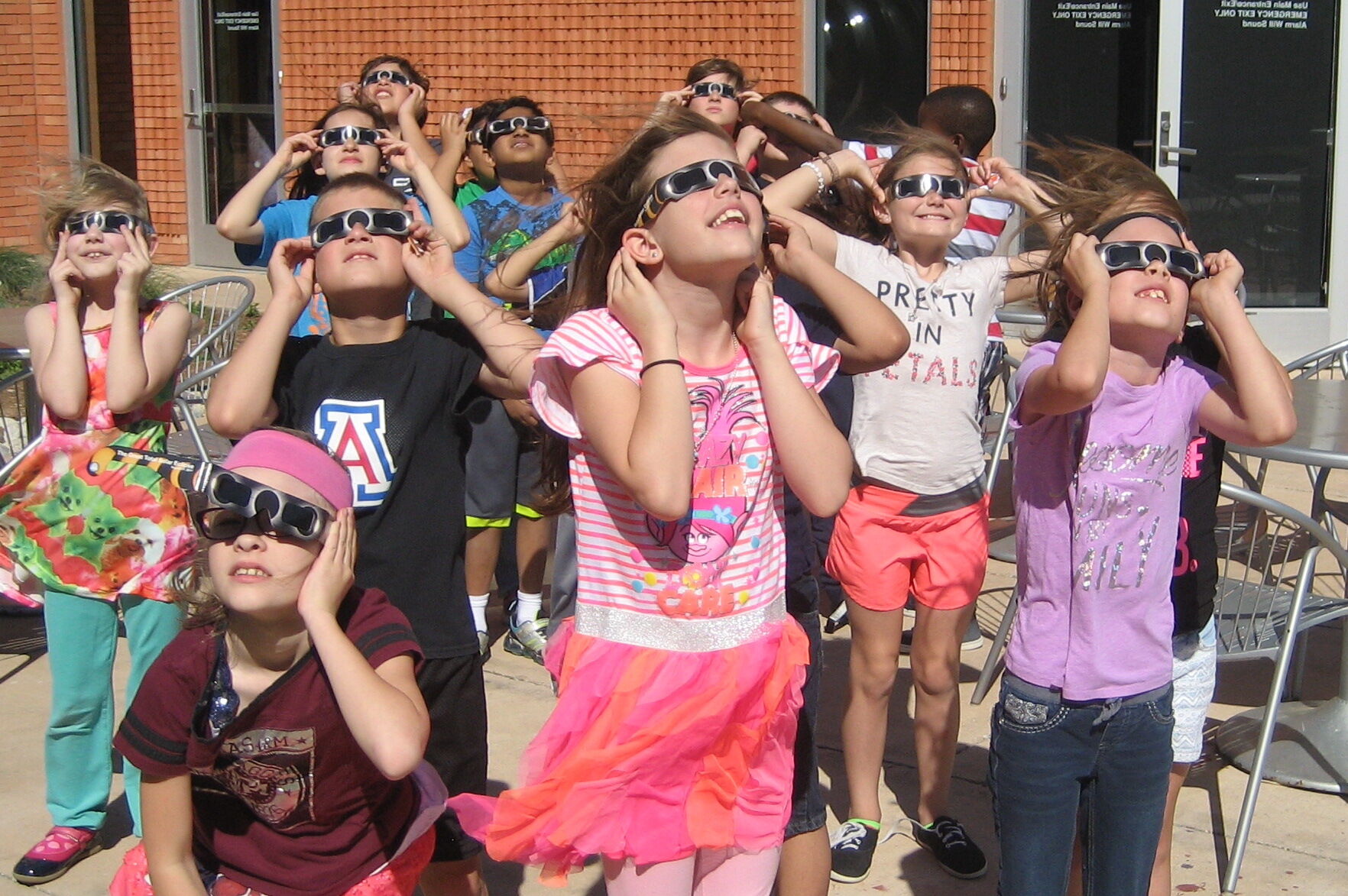An annular and total solar eclipse crossed North America on, respectively, Saturday, October 14, 2023 and Monday, April 8, 2024, and approximately 15,000 public libraries across the United States helped their patrons experience the spectacular celestial events by distributing glasses and conducting over 49,000 eclipse and solar science-focused programs.
With funding from the Gordon and Betty Moore Foundation, the Space Science Institute, through its Solar Eclipse Activities for Libraries (SEAL) program, provided 5.6 million safe solar viewing glasses to 14,953 individual library locations, distributed 207 solar science facilitation kits to state and territory, and conducting 78 in-person solar science-training workshops for over 2100 public library staff. The SEAL team also developed a wide suite of activities, handouts, and resources for informal educators.
Below are statistics and maps highlighting the extent of SEAL project activities and the humongous role that public libraries played in helping Americans experience the solar eclipses. If you scroll down further, you can find information, activities, and resources related not only to solar eclipses, but also for solar and other space science topics. We hope you are able to utilize these resources, and we’ll see you in 2045 for the next major solar eclipse in the US!
For any questions related to this project, contact Principal Investigator Anne Holland at aholland@spacescience.org.
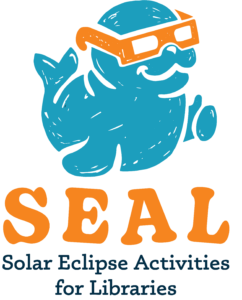
Even though the eclipses have happened already, solar observations and solar science activities are always engaging. Check out our Getting Started with SEAL page for solar science resources for libraries and indirect ways to view the sun:
Still looking for safe solar viewing glasses? Check out a list of the reputable vendors listed by the America Astronomical Society:
Suppliers of Safe Solar Viewers & Filters | Solar Eclipse Across America (aas.org)
Sign up for our STAR Net Newsletter for a monthly list of public library-focused resources, activities, and funding opportunities:
https://signup.e2ma.net/signup/1968817/33912/
Sign up for our STAR Net Community Site:
Create an Account – STAR Net Community (starnetlibraries.org)
Resources
Read More about the Eclipse
The SEAL team has developed a robust guide for public libraries and their communities in advance of the 2023 and 2024 eclipses. This booklet will introduce library staff and their patrons to eclipse science and viewing. It provides a range of ideas for library eclipse events and community partners that libraries can enlist for help. Pages 28 through 34 contain two handouts for patrons, in both English and Spanish: one for the 2023 annular eclipse, and the other for the 2024 total eclipse. Each is two pages and formatted for printing on a single double-sided sheet of paper so they can be easily shared with the public.
Annular Eclipse, Saturday, October 14, 2023
- For the U.S., the annular eclipse path began in Oregon at 9:13 am PDT and ended in Texas at 12:03 pm CDT.
- All the rest of North America (except for NW Alaska) experienced a partial eclipse during the morning.
- During an annular eclipse, the Sun never goes dark. At maximum eclipse, you can see a dramatic “ring of fire” around the dark sphere of the Moon.
- Just like for a total eclipse, you needed to be in a narrow path to see the ring.
- Because the Sun never went fully dark, you needed special protective glasses or filters throughout the eclipse.
Total Eclipse, Monday, April 8, 2024
- An excellent TOTAL eclipse of the Sun was visible the U.S. in 2024.
- Totality was first visible in Mexico, coming to Texas just after noon local time.
- The eclipse then moved northeast through Oklahoma, Missouri, Ohio, New York, and Maine, to name just a few of the states, and into Canada.
- In Mexico and South Texas the total eclipse lasted over 4 minutes, which is good for a total eclipse.
- All the rest of North America saw a partial eclipse.
- The path of totality, where the Sun was blocked out completely by the Moon getting exactly in front of it, was over 100 miles wide, and passed over more cities than the eclipse in 2017.
- The next total eclipse to cross the continental US will not be until Aug. 12, 2045!
And always remember – Keep your eyes protected when looking at the Sun. You can’t use regular sunglasses, you need eclipse glasses or to look through a telescope with a solar filter. Check our many activities for safe eclipse viewing.
See the American Astronomical Society site about safe eclipse viewing for reliable information.
Project Vision
By training librarians to do eclipse activities, we’ll increase the learning opportunities for library patrons throughout the United States.
To learn more about this exciting program, please read the full press release, available HERE.
Project Team
- Anne Holland (NCIL/SSI)
- James Harold (NCIL/SSI)
- Andrew Fraknoi (From Institute, Astronomical Society of the Pacific)
- Dennis Schatz (Institute for Learning Innovation)
- Amy Briones (NCIL/SSI)
- Beatrice Chavez (NCIL/SSI)
- Dillon Connelly (NCIL/SSI)
- Brooks Mitchell (NCIL/SSI)
- Claire Ratcliffe Adams (NCIL/SSI)
- Evaldas Vidugiris (NCIL/SSI)
- Stephanie Vierow-Fields (NCIL/SSI)
